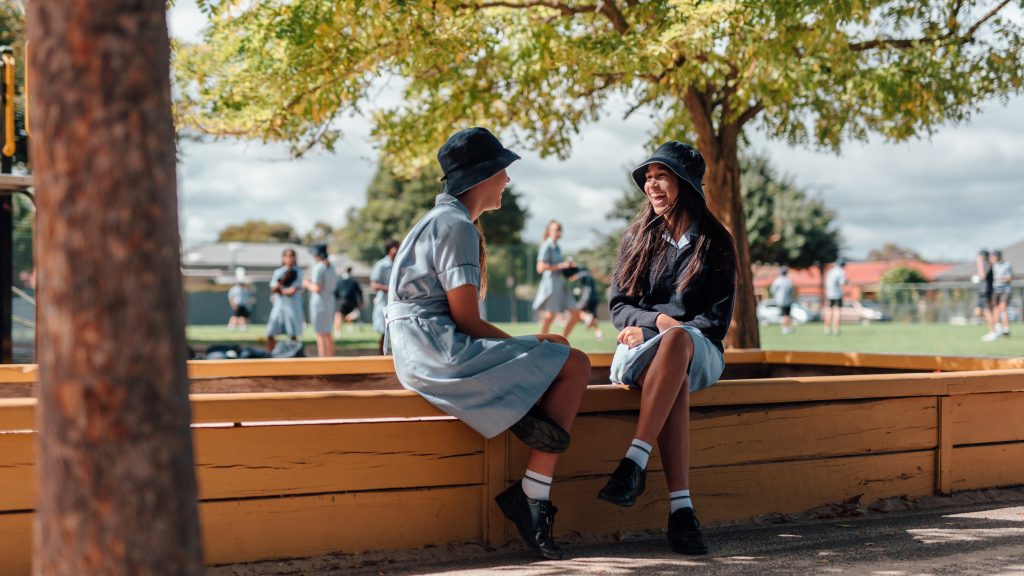Year 12 Subjects – Physical Education
Level: Stage 2
Prerequisites: Stage 1 Physical Education (one semester minimum)
Assumed knowledge: Stage 1 Physical Education
Course summary
Physical Education is a 20-credit subject (full year) at Stage 2. This Stage 2 course has three focus areas: In Movement, Through Movement and About Movement. The course prepares students for further tertiary studies in a range of courses including (but not limited to):
- Health and Exercise Sciences
- Physiotherapy
- Nutrition
- Podiatry
- Human Movement
- Junior, Middle and Senior H&PE Teaching
- Personal Training
- Certificate III and IV in Fitness
- Sports Training and more
Course content
The focus areas provide the narrative for the knowledge, skills, and capabilities that students develop. Learning is delivered through an integrated approach where opportunities are provided for students to undertake, and learn through, a wide range of authentic physical activities (e.g. sports, theme-based games, laboratories, and fitness and recreational activities). Students explore movement concepts and strategies through these physical activities to promote and improve participation and performance outcomes. These movement concepts and strategies include:
- body awareness
- movement quality
- spatial awareness
- relationships
- executing movement
- creating space
- interactions
- making decisions.
The application of a conceptual framework that promotes deep learning in, through, and about physical activity ensures that students make meaning of the cognitive and psychomotor processes fundamental to the learning of physical activity.
Students investigate improvements in human physical activity from a participation and/or performance perspective. This flexibility enables socio-cultural aspects such as inclusivity and equity to be integrated throughout learning activities. Students apply their understanding of movement concepts to evaluate aspects of their own or others’ physical activity and implement strategies to improve their participation and/or performance. Opportunities for students to reflect on their own movement experiences allow them to make greater meaning of these experiences.
The use of technology is integral to the collection of data such as video footage, heart rates, fitness batteries, and game statistics. Students apply their understanding of movement concepts to evaluate the data and implement strategies to improve participation and/or performance.
The focus areas can be studied in any order, independently or concurrently. Teachers in consultation with students select key ideas from each of the three focus areas that reflect the interests and skills of the student cohort, and integrate these across the learning program and the three assessment types. Teachers may allocate more time to some focus areas than others, providing flexibility in student learning through the depth and detail in which each focus area is studied.
Assessment:
Assessment at Stage 2 for students to demonstrate their knowledge, understanding and learning include:
- Internal Assessment:
- Assessment Type 1: Diagnostics (two tasks each weighted 15% each, total of 30%)
- Assessment Type 2: Improvement Analysis (one task weighted 40%)
- Assessment Type 1: Diagnostics (two tasks each weighted 15% each, total of 30%)
- External Assessment:
- Assessment Type 3: Group Dynamics (one group-based task weighted 30%)
Practical units that are chosen are based on the class size, student’s skills and ability levels promoting success and ensuring they achieve individual and group success
Uniform Expectations
As part of Health and Physical Education lessons, students are required to wear the correct PE uniform consisting of:
- Emmaus polo shirt
- Emmaus shorts (Shorts need to be correct fit and not too baggy)
- Emmaus wide brim or bucket hat
- Running shoes or cross trainers (Skate Shoes or Dunlop Volleys are not permitted as they don’t provide appropriate support for ankles or sole of their feet)
- Emmaus tracksuit on cooler days (Shorts and shirts need to be worn under the tracksuit so that it can be removed when students have warmed up)
- Sports drink bottle (water only)
Students that are injured or ill are still required to be changed, as they will be incorporated into the lessons where possible (i.e. umpiring, coaching, statistician, video recorder, etc.). A note from parents / caregivers or specialist is great appreciated outlining your child’s injuries and possible timeframe that they may be out of for practical lessons.

